Guest post by Dr. Don LeHoullier, DVM and Veterinary Expert for CareCredit Pet 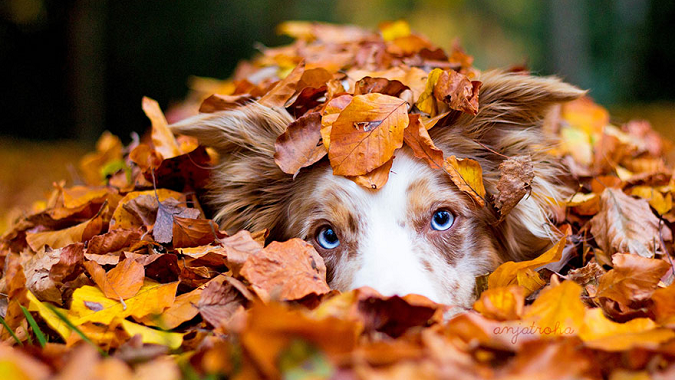 Every season brings its own brand of fun for our furry friends – cue the slow-motion videos of dogs of all sizes and breeds gleefully diving into piles of newly raked leaves. And of course, there are those adorable photo ops of cats and dogs in Halloween costumes. But it’s important not to overlook potential dangers as the changing seasons bring us shorter days, colder nights, deep freezes, and winter storms. In addition to protecting our furry family members, getting ahead of the potential issues affecting pets this season can help alleviate financial anxiety. In fact, according to Synchrony’s Lifetime of Care survey, nearly half of respondents underestimated the lifetime cost of care for dogs and cats, which ranges from $15,000 to $55,000. This is significant, as 46% said they would experience financial anxiety if faced with a vet bill of $500. “More than 90 million U.S. homes include a pet, and you may be one of those pet parents with an emergency vet visit this fall” said Jonathan Wainberg, senior vice president and general manager, Pet, Synchrony. “Pet parents need to factor in planned AND unexpected costs into their monthly savings plans, so that they are prepared for any eventuality. By getting ahead of these bills, consumers can look into the available flexible payment solutions to manage the cost of care throughout their pet's lifetime.” To mitigate potential health issues and unplanned veterinary costs, pet parents should consider the following examples of the potential dangers facing pets this fall.  Wildlife Threats Many critters can pose severe risks to pets including ticks and snakes preparing for hibernation. While it’s important to protect pets from ticks year-round, they’re especially active in the fall, which is why it’s important to consider flea and tick prevention measures. To reduce the chances of stumbling upon a snake, do a quick sweep of your backyard before letting your pet outside. Snakes typically like to hide in piled up rocks or logs, tall grass and hollow tree knots, so be sure to check all potential danger zones. Food also attracts wildlife, including pet food, garbage and seed in bird feeders. Racoons are especially guilty of raiding food that’s been left out, and it’s not uncommon for them to be aggressive toward dogs and cats in their pursuit of a quick bite. Be sure to bring all food inside before going to bed for the night to keep your pets safe. Poisons and Toxins In general, it’s a good rule of thumb to closely supervise your pets when they’re outside. Keeping an eye on them will allow you to intervene quickly if they encounter toxins such as mushrooms and moldy walnut shells. While only 1% of wild mushrooms are toxic, ingestion can be life-threatening. And moldy walnut shells mimic metaldehyde poisoning, which can be devastating and expensive to get through. Unfortunately, rodent poisons become more common in the fall to keep critters at bay, which is why it’s important to be vigilant in protecting your pet from accidental exposure. This includes in the park, your neighborhood and even your home! And with Halloween right around the corner, be sure to keep decorations out of reach including toxic plants like chrysanthemums as well as mold on pumpkins, gourds, and hay.  Weather and Daylight Changes Cooler temperatures and longer nights can also impact pets’ behavior and well-being. Wearing reflective gear can help to keep your pet (and yourself) visible when taking late night strolls. It’s also important to keep pets warm as temperatures drop. And if it’s especially snowy, be sure to protect your pets’ paws with booties or salves. Finally, as with humans, pets’ allergies can be brutal in the fall – especially ragweed and mold. Keep an eye out for symptoms like excessive sheading, scratching and biting the coat or skin, and compulsive paw licking. Runaway Pets As awful as it is to think about, the above dangers can increase the risk of pets running away. Whatever you do, make sure your pets are microchipped and your contact information is updated. I can’t tell you how many unfortunate stories I’ve encountered with pets escaping and the owners aren't locatable. Similar to fireworks during the 4th of July, pets can become anxious when they hear constant doorbell ringing during trick-or-treating. With higher foot traffic on this spooky day, there’s a greater risk of escape. Protect them from scary ghouls, goblins and noises by investing in a thunder vest, which functions the same way as a baby swaddle. Gentle constant pressure calms the sympathetic nervous system and stimulates the Vagus nerve to de-activate the “fight or flight” response. Fall is a great time of year for pets – but only if the proper precautions are taken. A snuggle and treat usually help with common scares like the dreaded vacuum and car rides, but pets don’t do well with seasonal change. At the beginning of each season, talk to your vet about how you can mitigate any potential harm from befalling your beloved pet.  Written by: Dr. Don LeHoullier, DVM and Veterinary Expert for CareCredit Pet Don LeHoullier is a veterinarian and owner of Countryside Veterinary Clinic in Jefferson, OR. In this role he works on a variety of animals ranging from dogs and cats to the occasional farm animal. Dr. LeHoullier has a Certificate in Veterinary Technology, received a Bachelor of Science in Animal Science from Oregon State University College of Agriculture and graduated from Oregon State University College of Veterinary Medicine with a Doctorate degree in Veterinary Medicine. Dr. LeHoullier took a particular interest in pain and analgesics, and advanced anesthesiology. He also spent time abroad, training in Australia and New Zealand. In 2002, Dr. LeHoullier researched the effects of photodynamic therapy for the treatment of equine sarcoids in vivo and in vitro as part of the Merck-Merial Research Program. In the same year, he also assisted in a project studying the vasoconstrictive effects of ergot alkaloids on bovine blood vessels in vitro. In his free time, Dr. LeHoullier enjoys spending time outdoors, building PCs and gaming, and growing exotic chilis.
0 Comments
Summer is in full swing - heat, BBQs, pool days, relaxing - what's not to like?
Summer is also fun for dogs and cats, but there are some summer hazards that I want to highlight so that you can stay safe, sane, and OUT of the vet hospital this summer! (ain't nobody got time or money for that...so let's prevent accidents!) In this blog post I'll be sharing my top 7 seven summer safety tips. 1. Never Leave Your Pet Alone in a Hot Car. Despite widespread media coverage, hundreds of dogs and cats left in cars perish in heat-related deaths during the summer. According to the AVMA, the temperature inside a car can increase by 20 degrees in 10 minutes, 30 degrees in 20 minutes, and after 60 minutes the temperature can rise by more than 40 degrees. Furthermore, a number of states, counties, and municipalities are making it illegal to leave a pet inside a locked car, and allowing Good Samaritans and police to take drastic measures, such as breaking car windows, to free pets from hot cars. While heat stroke can be fatal, what you might not know is that even heat stress is hard on a pet's internal organs and can create problems down the road that can, you guessed it, cost you money and shorten your pet's life. When it comes to leaving pets unsupervised inside cars, for potential legal and health reasons, the best option is to not do it. If you cannot take the dog with them inside when they are out and about, leave the pet at home...unless you have a Tesla that has a/c that runs while the car is off (which is very cool, especially if you live in Phoenix, where the sun literally touches the earth...)
2. Protect Your Pet Against Parasites.
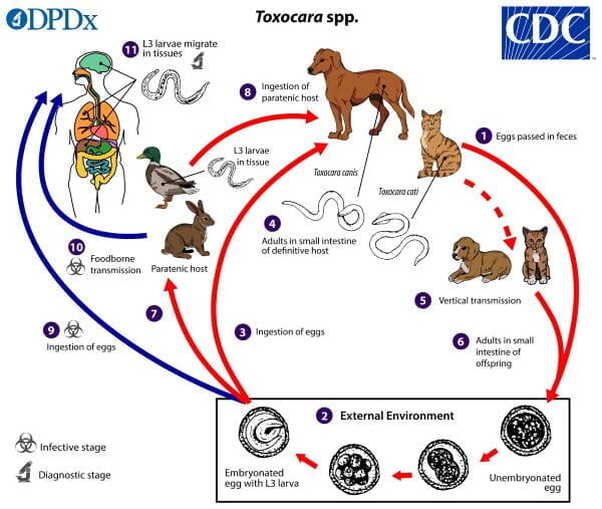
Summer means outdoor time, hiking, nature, and fun with pets in NATURE! Ah yes, we love nature, but we don't love all the exposure to intestinal parasitic eggs and hungry fleas and ticks. It is important to keep pests out of and off of pets by using external and internal parasite control. Parasite control not only protects the pets, it also protects against parasites that can infected people, like roundworms and hookworms. For peace of mind, use products that your veterinarian recommends. Pro tip: Most heart worm prevention contains dewormer for many intestinal parasites as well, so you get full spectrum worm protection - YEAH! 3. Noise Phobias are Real Late June and early July can be torture for pet guardians of dogs that are scared of fireworks. Signs of noise phobia/aversion can include:
Fortunately, there are lots of ways to calm pets, including prescription medications and at-home remedies, including:
If nothing is helping and you need help, schedule an appointment (can be by phone or zoom) with a behaviorist or your local veterinarian - they can help you develop multiple strategies that complement each other to help your pet stay calm and safe. 
4. Hot asphalt and concrete will burn paw pads.
Asphalt and cement can be 40-60 degrees hotter than the surrounding air temperature, meaning that if the temperature is 100 degrees, the pavement could be 150 degrees or hotter. Asphalt heated by the sun to 135 can fry a dog’s paws in seconds, and air temperature is not a good indicator of ground temperature. A good ‘rule of paw’ is to test pavement by pressing your own bare feet or hands for 10 seconds on the pavement. If it is too hot for you, then it is too hot for your dog - find a different, cooler way to get your daily exercise, or go for a walk on soft surfaces like dirt trails or grass. Boots aren't recommended because dogs cool themselves through their paws. 5. Exercise during the coolest part of the day. It boggles my mind to see people out jogging with their dogs in the heat of the day, but yet it still happens. Even walks in the hot sun for smush faced dogs can be torture and downright dangerous. Most times people just don’t understand that their dogs aren’t having a good time, or that it can be really bad for their dog’s health. If your dog is panting hard, laying down, dragging behind, or seeking shade then they are toooooo hot. Dogs and cats aren't great at cooling themselves, and heat stroke can be life threatening, so it is important to know the signs of heat stroke, and what to do when you notice the signs. In addition, when it is hot, it is important to provide ways for your pet to cool themselves, and not take brachycephalic (smushed faced) dogs out for exercise during the heat of the day (warmer than 80 degrees F), as they are even less able to cool themselves. Check below for some excellent cooling products to try with your dog. 
6. Check your dog for foxtails after they play in grass.
AH THE DREADED FOXTAIL! Unless you have experienced the drama and expense of a foxtail getting stuck somewhere in your dog, it is highly unlikely that you know about this summer danger. Foxtails are grass seeds that have a barb on one end, and fanned out fibers on the other end. These foxtails get caught EVERYWHERE on dogs, but especially in between toes, up noses, in ears, and in eyes. Always check your dog for foxtails after they have been out around grasses that are going to seed (July-August in most areas), especially in between toes. If your dog is licking their paw excessively, has a swelling or hole that is draining pus in between the toes, then get your dog checked by a vet asap, as these foxtails can break up and be really hard to find the longer they are under the skin. Like...really. For long and medium hair breeds, ask your groomer do a ‘foxtail’ cut on the feet - this trims hairs that can trap and obscure foxtail awns, making it easier for you or your dog to remove them. 7. Ear and Skin Infections are more common in summer and fall. Skin and ear problems due to seasonal grass and tree pollen allergies represents a large percentage of daily appointments in late spring, summer, and early fall. If your dog has seasonal allergies, get started with antihistamines and other control measures early to minimize symptoms and itchiness. Not sure how to control seasonal allergies? Talk to your vet, and read this blog post I wrote about everything pet parents need to know about skin infections. Ear infections due to seasonal allergies also tend to flair up during the summer. Ear infections also increase because dogs are swimming - and they can get 'swimmer's ear' just like people do. If your dog is predisposed to developing ear infections, clean their ears 1-2 a week with a high quality ear cleaner, like this one that I recommend from Life's Abundance. Alternatively, you can make your own at home with a 1:1 solution of white vinegar and rubbing alcohol - just a few drops in each ear will dry and acidify the ear, making it inhospitable to yeast and bacteria. Do NOT use a homemade rinse if your pet shows signs of ear infections (excessive scratching, redness, discharge, odor) - instead, take them to the vet for treatment. What are your recommendations for staying cool and healthy with your pet during the summer? Share your wisdom with us in the comment section below, and check out the summer products I recommend for pets! xoxo Dr. Sarah Cooling Products for Dogs:
Ear and Skin Care Products:Calming Products:
Disclosure: This newsletter contains affiliate links, which means that Dr. Wooten may earn a small commission at no extra cost to you if you make a purchase using these links. This helps support her work and allows her to continue providing valuable pet health care information to her audience. Dr. Wooten only recommends products she believes in and trusts, so you can feel confident knowing that any purchase made through these links meets her high standards. Thank you for supporting Dr. Wooten and her mission to educate and empower pet owners and veterinary professionals.

Skin allergies are a common health issue faced by pets, causing a lot of discomfort and distress for both the pet and for the pet parent (especially when they are scratching like crazy at 2 a.m.).
There are many factors that can contribute to skin allergies in pets, including environmental factors, fleas, foods, and genetics. In this blog post, you will learn the most 4 most common allergies in dogs and cats, the symptoms, causes, treatment options, and how to prevent allergies from ruining you and your pet’s life. Atopic Dermatitis
Atopic dermatitis, or atopy, is a type of skin allergy caused by pets having reactions to normally innocuous environmental substances such as pollen, mold, insect particles, and dust mites. Atopic dermatitis is considered to be both an immune hypersensitivity issue (they are reacting to things they shouldn’t) and a structural skin barrier problem (things are getting through the skin layers that shouldn’t). While humans have sneezing and runny eyes, dogs and cats get itchy skin (and sometimes sneezing and runny eyes too).
This type of skin allergy is inheritable in dogs (in cats we aren’t sure), and while it is more common in certain breeds of dogs, including Boston terrier, boxer, cairn terrier, Chinese shar-Pei, cocker spaniel, Dalmatian, English bulldog, setters, pit bulls, Frenchies, Lhasa Apso, miniature schnauzer, pug, Westies, labs, and goldens, it can be seen in any dog. Additional facts about atopic dermatitis:

Symptoms of Atopic Dermatitis
Atopic dermatitis causes itching, skin irritation, hair loss, and redness. In dogs, it can cause nail bed infections. Cats develop bumps all over their body, called miliary dermatitis. Secondary problems, including hot spots and skin and ear infections, as well as itchy, runny eyes and sneezing, are common. How is Atopic Dermatitis Diagnosed? A veterinarian uses a combination of oral history from you, physical exam, and skin testing to rule out other issues, like skin infections or mites, to diagnose atopic dermatitis. This is also true of diagnosing other skin conditions including all allergies covered in this article as well. How is Atopic Dermatitis Treated? OTC medications that are used to manage (not cure) the disease by controlling itching include:
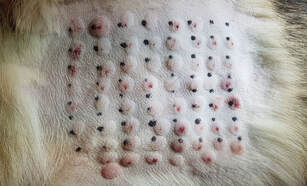 Intradermal skin testing Intradermal skin testing
Once your pet has been diagnosed with atopy, then some vets may offer a blood test to determine what your pet is allergic to. The blood test measures the amount of IgE antibody in your pet’s blood.
Pros of the blood test include:
These tests can be helpful, but they do have their limitations:
While regular vets can provide relief from itching and blood allergy tests, If you really want to know what your pet is allergic to, then you need to take your pet to a veterinary dermatologist for intradermal skin testing. Blood tests are more convenient, but the diagnosis is not as accurate as skin testing. Skin testing is more expensive and requires sedation, but:
How to Prevent Atopic Dermatitis The only way to prevent symptoms other than allergy shots is to avoid the allergens and use medicated products. If your dog is allergic to pollen, then keeping them inside when pollen counts are high or wiping them off with a wipe after they go outside (especially their paws, underbelly, and any skin folds/wrinkles) is a good start. If they roll in the grass, wipe their whole body! I like HICC Pet wipes because the hypochlorous acid is stabilized (very important!) and clinically proven to be anti-inflammatory, pro-skin health, and anti-itch. As an aside, it also kills COVID. Who knew. Additional preventive measures include:
These therapies work best when you are proactive - if you know that your pet has allergies to pollen or during a certain time of the year, for example, then starting antihistamines and wiping them off BEFORE they start to show symptoms. Flea Allergy Dermatitis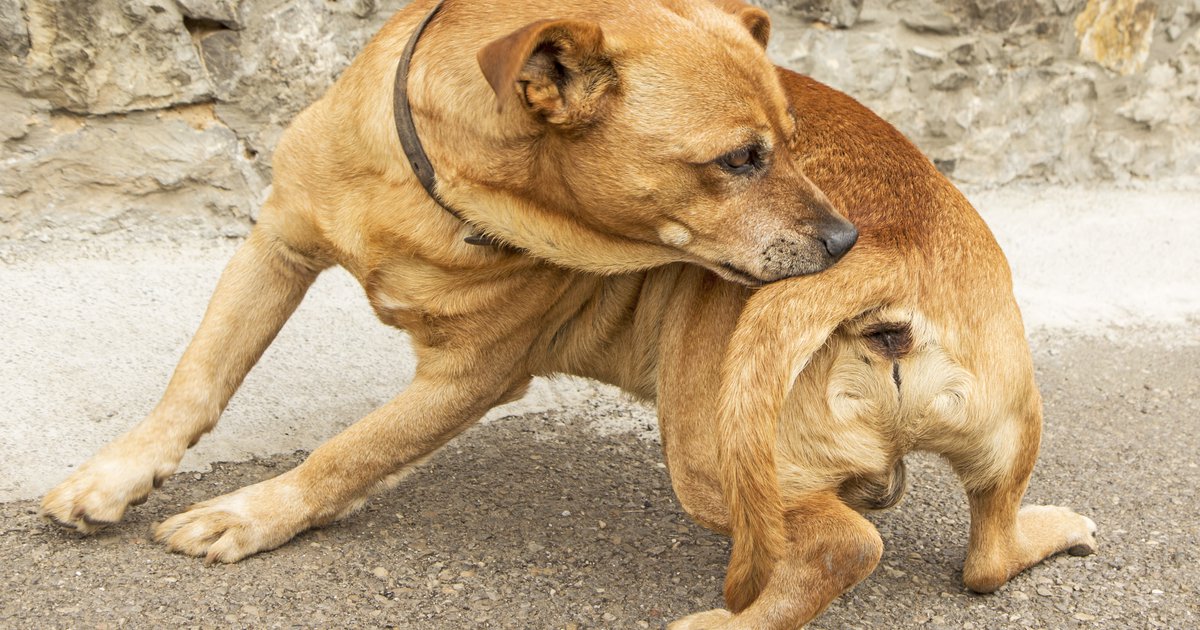
Did you know that dogs and cats can be allergic to flea saliva? It’s true! In pets that are allergic, the bite of just one flea can drive them crazy enough to pull their hair out! This type of skin allergy is moderately common in pets and can cause intense itching, redness, and skin irritation. Flea allergy dermatitis can lead to further complications such as hot spots (raw wounds where the pet has pulled out their hair) and secondary bacterial infections. Flea allergy dermatitis is a seasonal problem unless you live in an area where fleas are present year round. In which case, god bless you.
Symptoms of Flea Allergy Dermatitis In dogs, flea allergy dermatitis usually manifests as a raw, oozing, hairless, intensely itch wound on the neck or around the base of the tail. In cats, flea allergy dermatitis usually manifests as bumps all over the body (called miliary dermatitis) and/or hot spots around the head and neck. Treatment of Flea Allergy Dermatitis Treatment typically includes shaving and cleaning the hot spot, steroids to stop the itch, and antibiotics for skin infections. Prevention of Flea Allergy Dermatitis Prevention of fleas is critical to prevent flea allergy dermatitis, and vets will typically recommend an insect growth regulator (like Interceptor) to keep fleas from maturing and a quick-kill prescription flea prevention to prevent flea allergy dermatitis. In addition:
Contact Dermatitis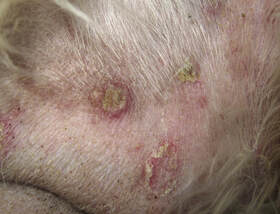 Bacterial Skin Infection Bacterial Skin Infection
Contact dermatitis is a type of skin allergy caused by exposure to certain irritants such as chemicals, plants, and metals. It is different from atopy in that only the part of the body that touches the offending substance is itching or red. Dogs can develop contact dermatitis from exposure to things like pesticides, cleaning products, laundry detergent, and certain plants.
Symptoms of Contact Dermatitis Contact dermatitis usually causes localized skin irritation, itching, and redness, and can lead to further complications such as hot spots and secondary infections. It is often seen on the belly or paws. Treatment of Contact Dermatitis Treatment includes medications to stop the itch and treatment of any secondary infections. It also helps to give these animals a bath. Prevention of Contact Dermatitis You can prevent contact dermatitis by identifying what your pet is allergic to, and then avoiding exposing your pet to that substance. Try switching to a hypoallergenic, fragrance free laundry detergent and only use hypoallergenic shampoos on your pet. If your pet has chin acne, switch to a stainless steel bowl and wash the bowl daily in between feedings. Food Allergies
Food allergies, otherwise known as cutaneous adverse food reactions, are a type of skin allergy caused by an allergic reaction to certain proteins found in food. Common allergens in pet food include beef, chicken, dairy, egg, pork, and soy. Wheat and corn allergies are much less common. Pets are usually fed the offending food for at least 2 years before developing symptoms.
Symptoms of Food Allergies Symptoms of food allergies occur after the pet has eaten something they are allergic to. Symptoms are often year round (if the pet is eating the same food year round). It is the third most common allergy in dogs and the second most common allergy in cats. All dog breeds are susceptible, in cats food allergies are more common in Siamese cats. Food allergies can cause skin irritation, itching, and redness, and can lead to further complications such as hot spots and secondary infections. In contrast to flea allergies and atopic dermatitis, food allergy patients often have concurrent gastrointestinal signs, including excessive gut sounds, gas, frequent bowel movements, vomiting and diarrhea. Diagnosis and Treatment of Food Allergies Unfortunately, there is no accurate test in veterinary medicine to diagnose food allergies - so don’t waste your time on those tests you can buy on the internet! Diagnosis of food allergies is a diagnosis of exclusion, meaning the vet has to rule out other causes before assuming a food allergy. The only way to diagnose a food allergy is by removing allergens from your pet’s diet and seeing if the symptoms resolve. This is either done by feeding the pet a novel protein food (something they have never eaten before) or feeding them a hypoallergenic food (usually prescription only) that has hydrolyzed proteins that have had the allergens removed. Now…most people think they can just switch their pet to a different kind of food with different ingredients, but unfortunately it just ain’t that simple. Most, if not all, commercial pet foods are made in factories that make multiple types of food on the same machines. If the machines aren’t completely, 100%, ridiculously meticulously cleaned in between food runs (which they aren’t) then the food is ‘contaminated’ with microscopic particles of ingredients from other diets. For example - if you think your dog might be allergic to chicken so you switch to a lamb formula, that lamb food is likely made on the same rollers as chicken food, and contains microscopic chicken particles, even though it doesn’t say chicken on the bag. Normally, this isn’t a problem. For food allergic pets, it is. This is why your vet wants you to purchase and feed your pet a therapeutic diet that is made on entirely cleaned/dedicated machinery to ensure there are no microscopic contaminants from potential allergic ingredients. (ps this is also why the food is so expensive) Most feeding trials last anywhere from 8-10 weeks, depending on how fast symptoms resolve (or not). During this feeding trial your pet cannot eat ANYTHING ELSE, including people food, treats, or flavored medications (including heartworm prevention - to ask your vet for unflavored heartworm prevention during this time). If your pet accidentally consumes something other than the prescribed food, then the diet trial starts over. Wah wah. The reason the feeding trial is so long is it takes that long for skin and gut cells to turnover. If your pet has a food allergy, then they will likely have resolution of gastrointestinal signs first (because those cells turnover faster, usually 2-4 weeks) and resolution of skin signs second (usually takes 6-8 weeks). If all signs resolve, then great! Your pet likely has a food allergy and you have two options:
Most pet parents don’t want symptoms to return and elect to stay on the special food. Prevention of Food Allergies Easy: don’t feed your pet the offending ingredient(s). Skin allergies are a common problem for dogs, causing a range of symptoms from mild irritation to serious health issues. Understanding the causes, symptoms, and treatment options for each type of skin allergy is important for managing the condition and providing relief for the dog's symptoms. It’s also important to remember that not all itchy pets have allergies - the problem might be something else entirely. This is why it is important to involve your favorite veterinarian in diagnosing the problem before you start treating. By identifying and managing the underlying cause of itching, pet parents can help prevent further complications and ensure the overall health and well-being of their furry companions. xoxo Dr. Sarah Wooten Recommended Skin Care and Nutrition Products:
Our furry friends bring us joy, companionship, and unconditional love (and if you have a Golden, lots of fur). However, just like humans, pets can also experience stress and anxiety that can be profound in some dogs and cats. Understanding the signs, causes, and ways to manage stress in our beloved companions is not only crucial for their well-being, but also for ours. EVERYTHING IS RELATED In this blog post you will learn the signs of stress and anxiety in pets, the signs of stress, how to manage stress and anxiety at home, and when to call the vet. Signs of Stress and Anxiety in PetsPets, whether dogs, cats, or other animals, can exhibit various signs of stress and anxiety. One common indicator is a change in their behavior. For example, a typically friendly and outgoing pet may become withdrawn, hiding away or avoiding interactions with family members. or overly grumpy. On the other hand, some pets may become excessively clingy, seeking constant attention and reassurance. Changes in appetite, such as decreased or increased eating, as well as vomiting and diarrhea, can also be signs of stress. Additionally, pets may exhibit destructive behaviors, such as excessive chewing, digging, or scratching, which can be a result of anxiety. Some pets can even pull out their hair, urinate and defecate inappropriately where and when they shouldn't, or lick themselves enough to cause sores. Needless to say unaddressed stress and anxiety in pets shortens lifespans, decreases quality of life (both theirs and yours!), and (between veterinary bills and buying a new carpet because your cat urinated all over it multiple times, is expensive!
This blog post is intended to help you learn more about stress and anxiety in pets, including the causes, symptoms, how to manage it at home, and when to get the vet involved. Owning a pet brings immense joy, love, companionship, and fur into our lives. However, alongside the pleasures of being a pet parent, there often comes an unwelcome guest - guilt. Pet parent guilt is a common emotional experience that arises from the fear of not meeting our furry companions' needs to the fullest extent. Even veterinarians are not immune - I experienced it myself when I had to euthanize my dog, Alma, in 2021 after a valiant battle with cancer. It was gut-wrenching. In this blog post, we will explore the various aspects of pet parent guilt and provide strategies to cope with this challenging inner experience. Understanding Pet Parent Guilt
Pet ownership guilt can manifest from many different situations, such as feeling inadequate in providing proper care, feeling like you are neglecting pets' well-being, or not spending enough quality time with them. Separation anxiety guilt may arise when leaving our pets alone for extended periods, leading to worry and doubt about their emotional state. Guilt related to a pet's health may emerge when we feel responsible for their ailments, believe we could have done more to prevent them, couldn't do more because of financial limitations, or feel like you chose euthanasia either too early or too late. Additionally, guilt may weigh heavily when we perceive our pets' behavior as problematic because they are bored and lacking exercise opportunities and mental stimulation.
As a responsible pet owner, you want to ensure that your furry friend gets the best possible nutrition. With countless pet food options available, it can be challenging to make the right choice. A crucial aspect of selecting the ideal food for your pet is understanding the information provided on pet food labels. In this article, we'll help you decode pet food labels so you can make informed decisions about your cat's or dog's diet.
Decoding pet food labels can seem overwhelming, but with a little knowledge and practice, you'll become a pro at selecting the right food for your furry friend. Remember that your veterinarian is an invaluable resource for guidance on your pet's specific dietary needs. By understanding pet food labels and consulting with your vet, you can ensure that your cat or dog receives the balanced and complete nutrition they need for a long, healthy life. Author-About Sarah Wooten, DVM, CVJDr. Sarah Wooten is a renowned international influencer in the veterinary and animal health care spaces, with over 16 years of private practice experience and a decade in veterinary media work as a certified veterinary journalist. Passionate about educating pet parents, Dr. Wooten has written thousands of articles, created hundreds of videos, and made numerous media appearances as a veterinary expert. In addition to being a sought-after speaker for continuing education events, she is also a co-creator of the popular card game 'Vets Against Insanity'. In her free time, Dr. Wooten enjoys various outdoor activities and encourages everyone to live life to the fullest. Through her affiliate partnerships, she shares trusted recommendations to support her mission of empowering pet owners and veterinary professionals while providing reliable resources for pet health care. 
Calling all wild women!
Hello fellow readers and happy April! Spring is either around the corner or already showing up for many of you, and it's time to get back in touch with nature and our true selves. That is why I picked Women Who Run with Wolves for this month's challenge. While I definitely recommend this book for all female types, it is also a great read for male people because this book can help you understand the feminine and believe it or not, you have aspects of the divine feminine within you as well. I know. Hard to believe...but anyway - I still recommend that you read this book because it is life changing. I first stumbled across this book about 5 years ago, and have listened to it twice on audiobook already. This is my first time actually reading it and I'm so excited to see what new things I glean! If you are reading it for the first time, treat yourself to the audiobook. Dr. Estes is a cantadora - a female latin storyteller. Part of the reason I loved it so much on audiobook is because she does the reading and she is a master at storytelling. This book explores the divine feminine archetype and the wildness that we all have inside ourselves (because we are, in fact, part of nature even though we like to separate ourselves). She talks about the powerful forces we have inside, such as instinct, intuition, creativity, and love. In this book, she explores the wild woman and helps us come into contact with this ageless powerful part of our psyche. I admit - I straight up cried through some of the stories. I hope this book resonates with you and I would love to hear about how it impacts you in the comment section. 
If you need a reading schedule or want to follow along with the schedule I am using, here you go:
April 1 Introduction Singing over the Bones April 2 Chapter 1 The Howl April 3 Chapter 2 Bluebeard April 4 Chapter 3 Vasalisa the Wise Tasks 1-4 April 5 Chapter 3 Vasalisa the Wise Tasks 5-9 April 6 Chapter 4 Hymn for the Wild Man April 7 Chapter 5 Skeleton Woman April 8 Chapter 5 Skeleton Woman April 9 Chapter 6 The Ugly Duckling April 10 Chapter 6 The Mistaken Zygote April 11 Chapter 7 Joyous Body April 12 Chapter 8 The Feral Woman April 13 Chapter 8 The Feral Woman April 14 Chapter 9 Returning to Oneself April 15 Chapter 9 Returning to Oneself April 16 Chapter 10 Clear Water April 17 Chapter 10 Clear Water April 18 Chapter 11 Retrieving a Sacred Sexuality April 19 Chapter 12 Marking Territory April 20 Chapter 13 Battle Scars April 21 Chapter 14 Initiation in the Underground Forest April 22 Chapter 14 Initiation in the Underground Forest April 23 Chapter 15 Shadowing April 24 Chapter 16 Wolf's Eyelash and Afterword And as usual, I invite you to join me for a facebook live on the last Tuesday of the month at 5 p.m. (April 25th) MST/7 p.m. EST where I discuss the book. Bring your favorite bevvie of choice! To find facebook live (I call it DRSW Afterhours) https://www.facebook.com/events/589769789726646 I hope to see you there! If you need the book, I also included an amazon link where you can order it, and if you would like to see my entire reading challenge, go to this page. Alternatively, you can check out the other reading challenge posts on my blog orreading challenge page. Happy reading! Dr. Sarah 
You probably know that I believe that healthier, happier, more emotionally intelligent humans make for healthier, happier pets. This is why I started a monthly reading challenge - so we can also improve ourselves together! When you create a better you, everybody around you (including your pets!) benefit as well.
If you missed my January and February reading challenges, well - you can still get caught up, especially since this month is a much easier read. March's book is Mindful Moments. I chose this book for a couple of reasons:

A couple of tips for reading challenge success: 1. Try to read at the same place and time every day to build consistency and good habits. 3. Try keeping a journal about your thoughts as you work through this book. 4. Get your book for next month - Women Who Run with Wolves 5. If you got behind on the reading challenge for January or February, this is an excellent time to catch up! 5. Join me for a Facebook Live on March 28th at 5 p.m. MST/4 p.m. PST/7 p.m. EST as I discuss this book during DRSW after hours - I will drink wine, you can have your bevvie of choice, we will chat, and have a great time. Be sure to mark that you are attending, and I will see you there! :-) Happy reading, and stay mindful! xoxo~Dr. Sarah Need the books?

I believe that healthier, happier, more emotionally intelligent humans make for healthier, happier pets, which is why I started this monthly reading challenge! When you create a better you, everybody around you (including your pets!) benefit as well!
This month's book is Mindset: the new Psychology of Success. I chose this book because, I've read it before many times, and it has greatly impacted the way I think in all aspects of my life in positive ways. I used to have a really tough time with failure...really tough. I felt like it defined me, damaged me, and every time I failed it was the end of the world. This book helped me reframe all that, so I want to read it again with you! Consider this book your love note to yourself during February, the month of love. Here is the reading schedule I will be utilizing: 2/1: Chapter 1 2/2: Chapter 2 Grow Your Mindset** 2/3-2/5: Chapter 2 2/6: Chapter 2 Grow Your Mindset** 2/7-2/9: Chapter 3 2/10: Chapter 3 Grow Your Mindset** 2/11-2/12: Chapter 4 2/13: Chapter 4 Grow Your Mindset** 2/14-2/16: Chapter 5 2/17: Chapter 5 Grow Your Mindset** 2/18-2/19: Chapter 6 2/20: Chapter 6 Grow Your Mindset** 2/21-2/23: Chapter 7 2/24: Chapter 7 Grow Your Mindset** 2/25-2/27: Chapter 8 2/28: Chapter 8 Grow Your Mindset** 
The chapters in this book are longer, so I gave us several days to get through them. The 'Grow Your Mindset' days are for the sections at the end of each chapter where the author gives us several exercises to work through to...you guessed it...grow our mindsets. A couple of tips for reading challenge success: 1. Download the PDF calendar, print it out, and post it somewhere you will look at it every day. Check off each day as you complete the reading or exercises for that day. 2. Try to read at the same place and time every day to build consistency and good habits (remember our book from last month!) 3. A journal is helping for the grow your mindset exercises. 4. Keep notes on what stands out to you - I would love to hear about it! 5. Get your book for next month - Mindful Moments, by Deepak Chopra! Happy reading! xoxo~Dr. Sarah
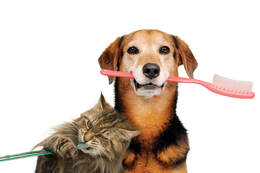 Did you know that during the month of February, veterinary professionals actively promote awareness around dental health in dogs and cats, and often offer awesome discounts on dental care and dental products? It's true! Dental health is incredibly important to your pet's overall health and wellness. Dental disease causes more than just bad breath - it is painful, shortens the life of dogs and cats, and reduces their quality of life. When a pet develops periodontal disease, they have infection and inflammation in their gums. Bacteria from the mouth can then enter the bloodstream and land in the heart or kidneys, putting extra wear and tear on these organs, shortening the life of the pet. Dogs and cats can start developing dental disease as soon as they get their adult teeth - around 6 months of age. In fact, over 70% of pets over the age of two are suffering from some level of dental disease. Just like people, dogs and cats get plaque buildup on their teeth. Plaque can be scraped or wiped off, but if it sits on a tooth for longer than 72 hours it can harden into tartar, which requires professional equipment to remove! Fortunately, there are several things you can do help promote dental health in your pet:
It can be hard to choose dental products that actually do what they claim to do on the label. Here is a few of my favorite dental products that you can purchase for your pet! Frequently Asked Questions about Pet Dental Health: How often do I need to brush my pet's teeth? Pets accumulate dental plaque just like humans do, so ideally you should brush your pet's teeth daily. It helps to set up a habit so you remember, such as, every time I brush my teeth, I brush my pet's teeth. If you can't brush every day, try to brush every 3 days because it takes that long for plaque (which can be removed with a brush) to harden into tartar (which can't). Do I have brush the inside of my pet's teeth? They won't say 'AH!" Fortunately, pets don't seem to accumulate much plaque on the inner surfaces of their teeth (the tooth surfaces that are closest to the tongue). You can give your pet the benefit of brushing just the outsides of the teeth - play close attention to the big teeth in the back and the canine teeth where pets seem to accumulate the most plaque, and don't forget the bottom jaw! I'm brushing my pet's teeth but they are stained brown and don't seem to get cleaner. What am I doing wrong? You aren't doing anything wrong - the brown staining is most likely dental tartar that is hard, adhered to the tooth and can't be removed with brushing alone. If this is the case, your best choice is to schedule a dental cleaning for your pet so that you can start fresh with clean teeth! Do dental chews help clean a dog's teeth? Chewing safe, long-lasting chews can definitely help to scrape teeth clean. And chewing is good for your dog's mental and emotional health as well! What science has found is that it isn't necessarily the type of chew but how long the dog chews for - chews that last 10-2 minutes are more effective than chews that last less than 10 minutes. Why are veterinary dental cleanings so expensive? They cost more than my dental cleanings! Pets don't understand that we are trying to help them when we clean their teeth - we can't ask them to say 'AH!' and if we tried to clean their teeth while they were awake, it would be incredibly stressful for them and we would not be able to clean below the gumline, where most dental disease likes to hide. Therefore, we have to anesthetize animals when we clean their teeth, and anesthesia is very costly. Most dental cleanings will cost $800-$1000 and more if there is any dental disease that requires extractions. To budget for yearly dental cleanings, I recommend saving $100 a month, or investing in pet insurance or a veterinary wellness plan that includes dentistry. How does dental disease affect my pet's overall health? If your pet has periodontal disease (gum disease), then that means your pet has inflammation in their mouth. Periodontal disease increases the body's burden of inflammation, and chronic inflammation is a key contributor to many health problems. Furthermore, bacteria gets into the bloodstream from infected gums and showers the valves of the heart and the kidneys, increasing wear and tear on these organs, shortening a pet's life space. Lastly, dental disease is chronically painful. |
AuthorDr. Sarah Wooten is a well known international influencer in the veterinary and animal health care spaces. She has 16 years experience in private practice and over 10 years experience in veterinary media work, and is a certified veterinary journalist. Archives
October 2023
Categories |
||||||||||||||||||||
Clickbank
ShareASale

 Figo Pet Insurance
Figo Pet Insurance








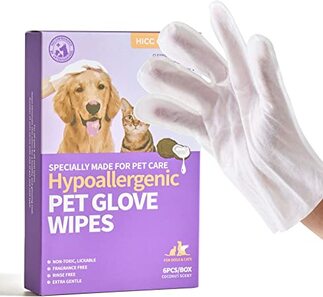


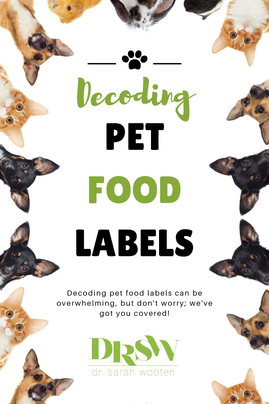

 RSS Feed
RSS Feed